

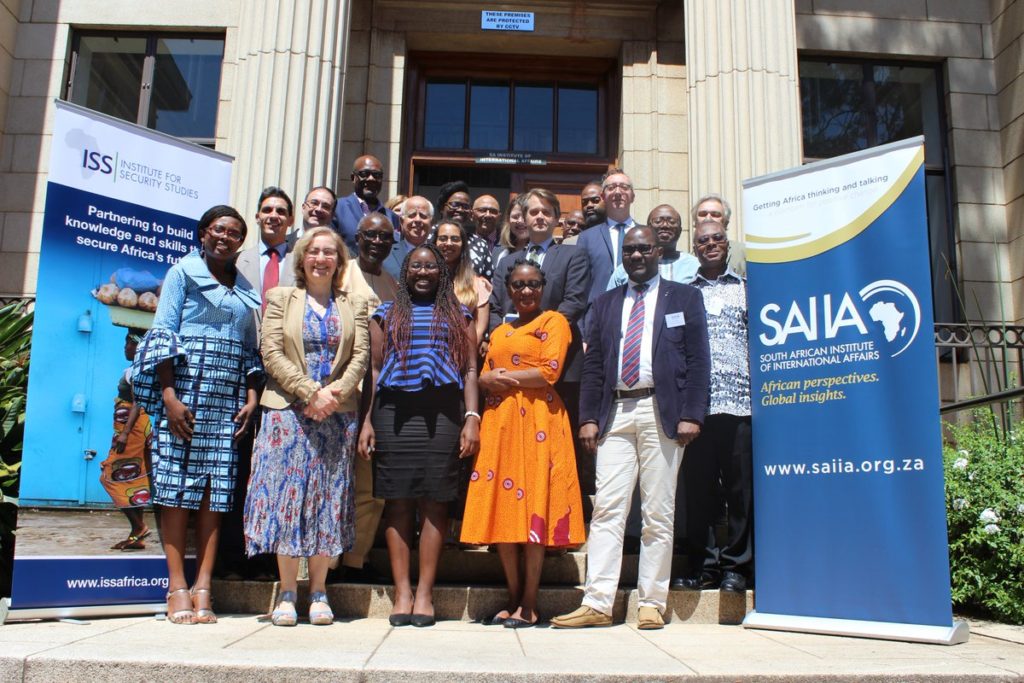 CSEA senior research fellow, Dr. Grace Onubedo participated at the “At the Table or on the Menu?Africa's role in the changing Global Order”, a 2-day workshop organized by South African Institute of International Affairs (SAIIA) on November 29&30,2018 in Johannesburg South africa.
CSEA senior research fellow, Dr. Grace Onubedo participated at the “At the Table or on the Menu?Africa's role in the changing Global Order”, a 2-day workshop organized by South African Institute of International Affairs (SAIIA) on November 29&30,2018 in Johannesburg South africa.
CSEA participated in the TTI Exchange 2018 (TTIX), held in Pullman Bangkok King Power Hotel, on 12 – 14 November 2018. The event focused on the theme ‘Sustainable Organisations for Sustainable Development: Into the Future – How Can Think Tanks Continue to Contribute to Building More Equitable and Prosperous Societies?’.
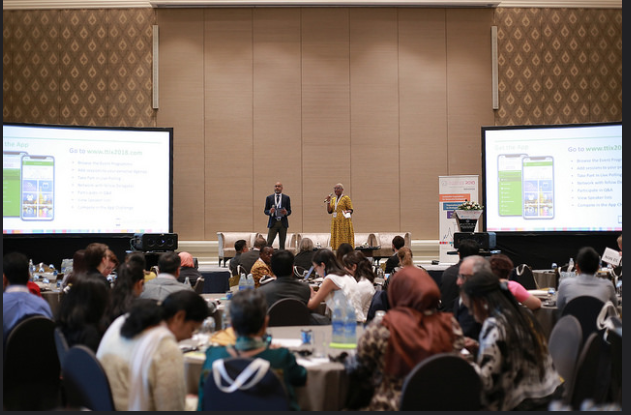
For a decade, the Think Tank Initiative (TTI) has continued to provide organizational and capacity support for 43 policy research institutions in 20 developing countries. The TTIX also brought together representatives of thinktanks, policymakers, donors, and other research-to-policy actors for a final Exchange to mark the last year of the program.
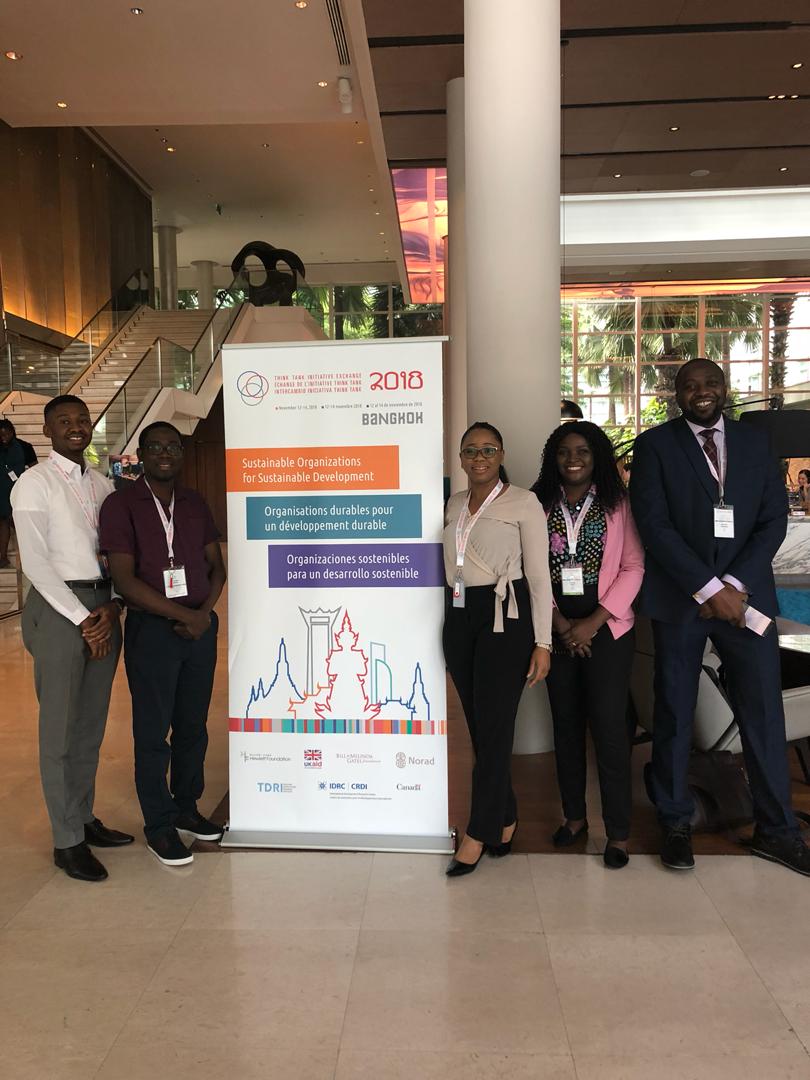
CSEA was represented by Executive Director, Dr. Chukwuka Onyekwena; Senior research fellow, Dr. Adedeji Adeniran; Research fellow, Precious Chukwuemelie Akanonu; Research Associate, Joseph Ishaku and Communications/Institutional Advancement Officer, Drusilla David. The team participated in various strategic sessions, with Dr. Onyekwena as a topic Convener in the session on Think tank strategies in policy windows. Precious Akanonu facilitated CSEA’s booth at the Think Tanks Making a Difference: A Market Place to showcase CSEA research, policy engagement, and outreach.
On Think Tanks –Think Tank Initiative (OTT-TTI) Young Leaders
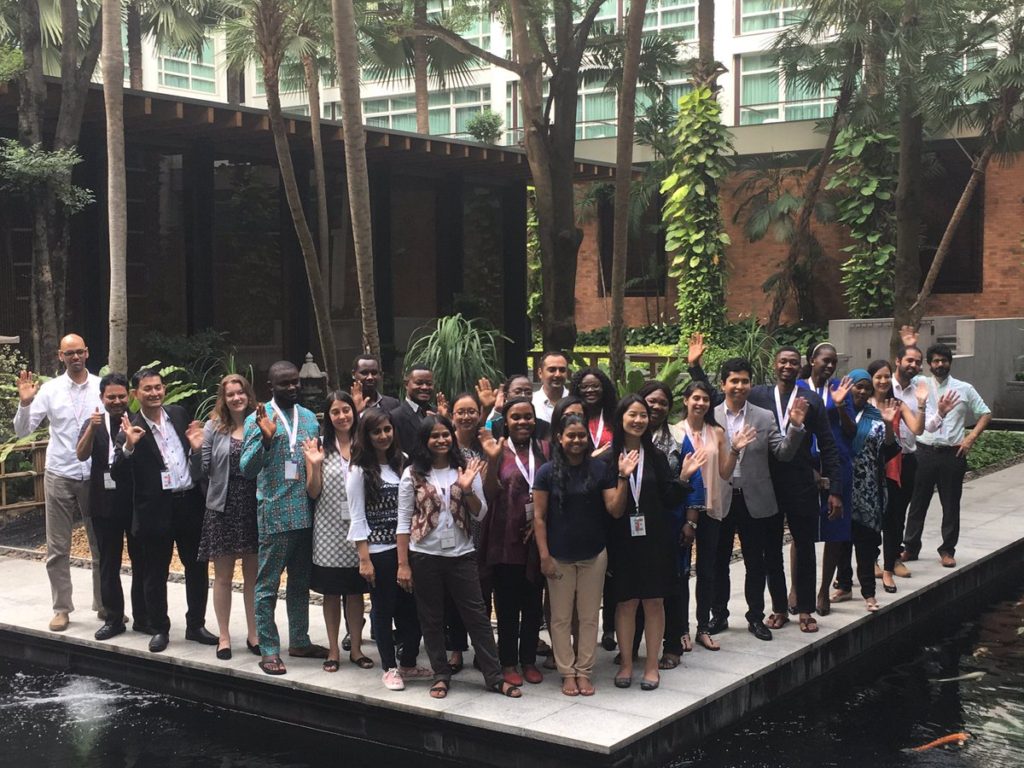
Joseph Ishaku and Drusilla David were among 24 Young Leaders who were selected for the first stage of the 2018 OTT-TTI Fellowship Programme. They joined other young leaders at the TTIX, to participate in the various sessions, which also provided opportunities for them to attend specific workshops and have mentorship opportunities. The OTT-TTI Fellowship is a partnership between TTI and On Think Tanks (OTT) to support the leadership capabilities among the new generation of think tankers, and to help them in becoming real agents of change.
Southern Voice Conference
CSEA also participated in the Southern Voice Conference which held subsequently, on November 15 and 16, 2018 in Bangkok. The meeting convened think tank experts from around the globe to discuss the network’s current and future agenda on policy issues related to sustainable development and the 2030 Agenda. CSEA team was represented by Dr. Chukwuka Onyekwena, Dr. Adedeji Adeniran and Drusilla David.
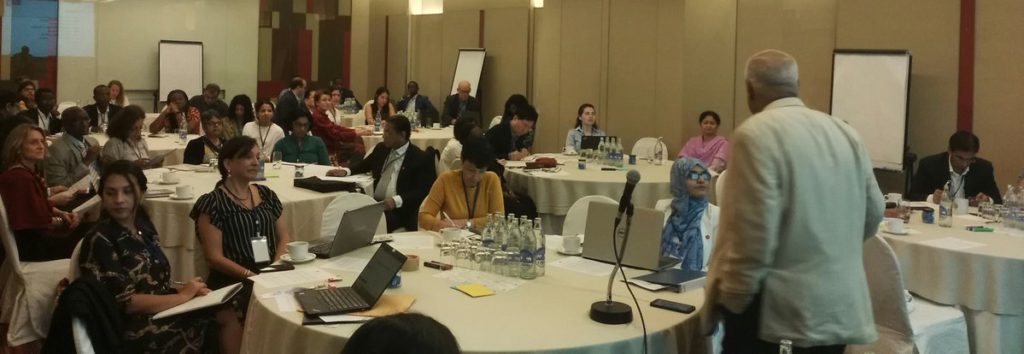
The issues of focus included cross-cutting themes for the implementation of the SDGs, relevant to all countries and policy areas for the topics: ensuring no one is left behind, dealing with synergies and trade-offs among different policy areas of the 2030 agenda, exploring the connections between global and national policies, and promoting effective development cooperation.
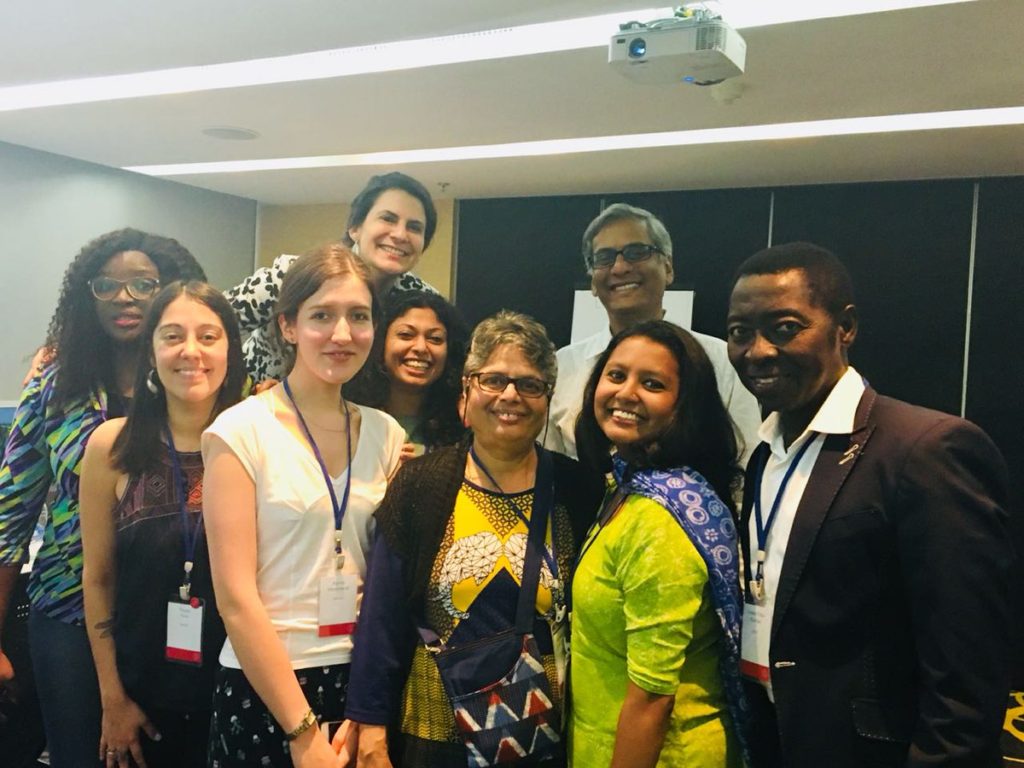
This conference also included a workshop among communication experts from the network to plan outreach and communication strategies for the flagship initiative “State of the SDGs“.
Tobacco use remains the leading cause of preventable death worldwide, causing more than seven million deaths per year--the vast majority in Low and Middle Income Countries (LMICs). Through the Economics of Tobacco Control Research Initiative, International Development Research Centre (IDRC) and Cancer Research UK (CRUK) are partnering to fund research focused on supporting innovative fiscal policy research on tobacco control in LMICs.
Tobacco is damaging to health, poses enormous economic costs, and accounts for a significant proportion of health inequities. Although smoking prevalence is low in Nigeria (17.5% in 2015), it is growing at an average of 4% per year. The tobacco industry is also increasingly expanding its customer base with the direct and indirect marketing of its products to women and children in rural areas of Nigeria. Yet, Nigeria’s policies for tobacco control are weak and poorly enforced.
The tobacco industry is reliant on Nigeria as a hub for tobacco production. In 2003, British American Tobacco made one of the largest investments by a tobacco company in sub-Saharan Africa when they commissioned a manufacturing plant in Nigeria. This plant produces approximately 18.4 billion packs of cigarettes that are exported across West Africa each year.
The apparent difficulty in implementing tobacco control measures is partly due to strong lobbying from the tobacco industry, who peddle false claims about the severity of the impact of tobacco control policies on employment and the economy. Frustratingly, this tobacco industry strategy has proven effective in many low and middle-income countries due to scarce or otherwise weak research evidence to refute misleading and exaggerated claims.
While there are laws restricting smoking to designated places, regulations that could clarify the placement and construction of any designated smoking areas have not been issued by the Ministry of Health. This project will complement the research conducted by the CRUK-IDRC funded group led by the School of Economics at the University of Cape Town.
This project is led by the Centre for the Study of the Economics of Africa (CSEA) in Nigeria. The CSEA is a not-for-profit think tank that conducts independent and high-quality research on economic policy issues in Africa. The team will actively engage and work closely with the Federal Ministry of Finance, the Federal Ministry of Health, the Tobacco Control Unit, and other research institutions and advocacy groups over the course of the project. CSEA will generate robust local evidence, which is scarce and acutely needed, to inform the implementation of fiscal and other policy solutions for effective tobacco control.
The main research focus of this project is to obtain local evidence on the optimal taxation structure and levels for tobacco products, the burden of tobacco-related diseases, and to tackle the false concern that tax hikes will increase illicit trade. The team will collect their own data through surveys and maximize the use of any existing data. Their sample will encompass retailers of various tobacco products (e.g. cigarettes, cigars, shisha) across brands, from economy to premium products, in 18 states across Nigeria.
Tobacco control is central to meeting the United Nations 2030 Sustainable Development Goals (SDGs), notably SDG 1 (to end poverty) and SDG 3 (to ensure healthy lives). The team aim to produce local evidence to support tobacco-control policymaking and implementation in Nigeria. Moreover, local evidence provides the context-specific information and tools needed to design policies and tax structures to improve public health and generate government revenue to support health-promoting programs.
Nigeria’s weak regulatory environment for tobacco control is not only due to the lack of government regulation — it is further weakened by failure of relevant government enforcement agencies to carry out their responsibilities. Therefore, a key part of the project is geared at creating awareness among the government agencies saddled with the responsibility of enforcing regulations, as well as training their staff and equipping them with the tools to more effectively enforce existing regulations. Tighter tobacco control policies in Nigeria will also have spill-over benefits to neighboring countries.
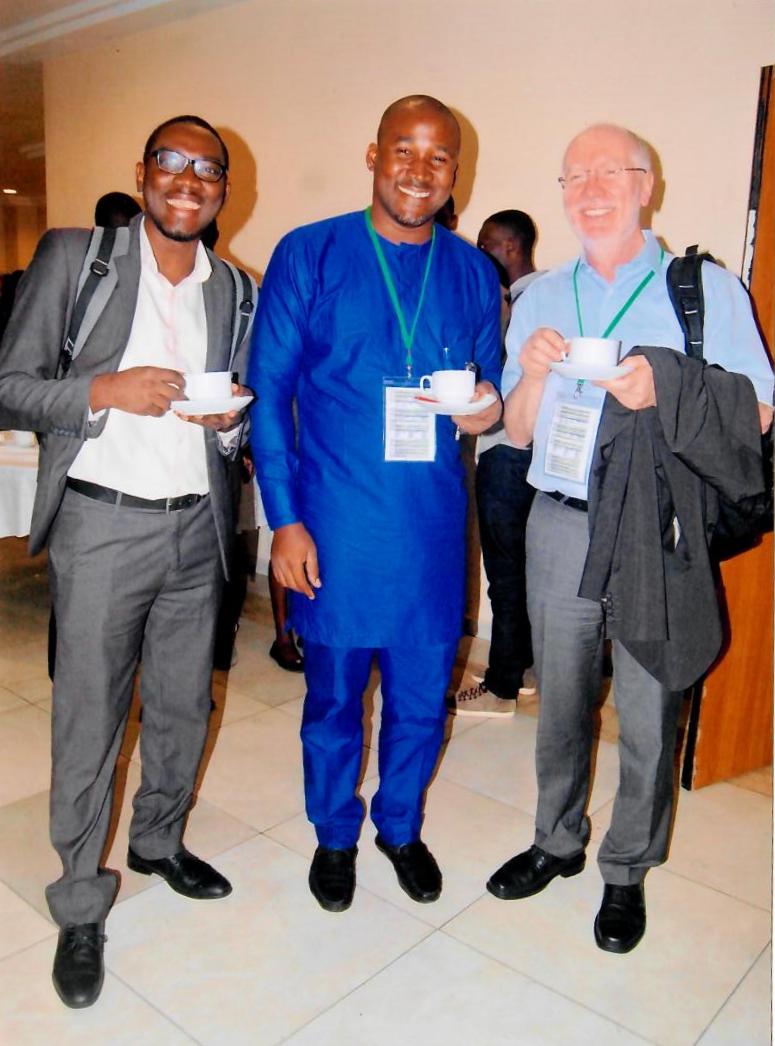
The Breakthrough Institute hosted the Ecomodernism 2018 dialogue on September 30 to October 2, 2018 in Virginia, USA. The dialogue provided an opportunity to take stock of how critical debates might be shaped to better advance human wellbeing and environmental protection, how policy initiatives might shrink the human footprint while raising economic productivity, and how cross-cutting coalitions of stakeholders and policy-makers might succeed in transforming environmental politics. It also provided a platform for participants to debate on several issues such as climate change, conservation, and urbanization. CSEA ‘s Research Fellow, Precious Akanonu participated in the debate on Energy for development.
